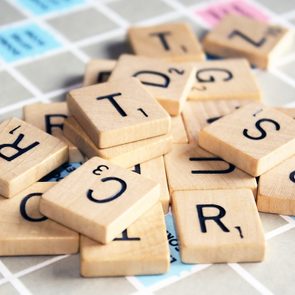“Burnt” vs. “Burned”: Which Is Correct?
Updated: Apr. 03, 2023

When should you use burnt vs. burned? Hint: It may depend on where you live.
If FOSI (fear of speaking ignorance) isn’t a common acronym, maybe it should be for grammar devotees. It occurs when you use a word but immediately think you’ve picked the wrong one. For example, burnt vs. burned. Some words, such as elicit vs. illicit, require enunciation and context to distinguish the difference. Others, including home in vs. hone in, envy vs. jealousy and flush out vs. flesh out, have sometimes been subbed incorrectly, further blurring their usage. And then there is loose vs. lose, not close at all, but often misused.
So where do burnt and burned fall in the lineup of grammar faux pas? Are the meanings of the two words as distinct as historic vs. historical, or is usage determined by geography, like it is for people who choose grey vs. gray to describe an overcast sky? And just how should you describe what happened to your toast this morning? We’ve got the answers.
What is the meaning of burnt?
The original reference of burnt appears in the late 14th century. “Burnt offering” describes a ritual in the Bible where an animal is well roasted and laid upon an alter. Merriam-Webster offers two contemporary and related definitions: consumed, altered or damaged by heat is the first. And the second is in relation to its color: Burnt can mean an exterior or appearance whose color has been affected by the heat—burnt sienna is a color reminiscent of Tuscan sunsets or the Arizona desert. The American lexicon categorizes burnt as an adjective, making it the perfect descriptive for your desiccated toast.
Examples of burnt in a sentence
- By the time I remembered the cake in the oven, it was burnt.
- The car skidded on the hot pavement, leaving an unpleasant odor of burnt rubber.
- Some people complain the coffee chain’s signature blend tastes like slightly burnt beans.
What is the meaning of burned?
Burned is the past tense of burn. It can be used as an adjective or a verb, but in American English, it is more often employed as a verb. Burned describes getting injured or destroyed by heat or fire. A curious toddler gets burned putting his finger on a birthday candle. It also refers in a colloquial way to getting cheated or shortchanged. Maybe a colleague got the promotion you thought you would get after bringing in new clients. You would feel burned by your boss. Heavy-handed teasing can also result in someone getting burned, or insulted.
Technically, burned is interchangeable as a verb and adjective for burnt. But since it is rarely used that way in the United States, it’s not considered a grammar mistake that makes you look bad.
Examples of burned in a sentence
- A grease fire that began in the kitchen burned the house beyond repair.
- You will get burned from a day on the beach without sunscreen.
- The banker had been working 70-hour weeks and was burned out on the investment business.
So, what is correct, burned or burnt?
If you’re trying to decide between burned vs. burnt, you really don’t have to. The words are synonymous. However, Americans mainly use burned as a past tense verb meaning injured by heat or combustion, or bad intentions. Both burnt and burned are acceptable descriptive words, but burnt is the more likely adjective in the U.S.
If you live in the UK, the rules are a little different: The British use burnt and burned as both verbs and adjectives.
Tricks for remembering burnt vs. burned
If you want to sound in the know about burned vs. burnt, do you consider yourself English or American? Feel free to use either in England. Plenty of aspiring chefs burnt their cakes on The Great British Baking Show. In an American version, though, the cakes were burned—and no one can win with burnt pastries.
Of course, if you are channeling your inner Anglophile, you might as well be in for a penny, in for a pound and consider airplane vs. aeroplane. And if you really do fear sounding ignorant, here are a few (dozen!) grammar rules to sound smarter.
Burnt vs. Burned: Test your knowledge!
Sources:
- Merriam-Webster: “Burnt”
- Merriam-Webster: “Burn”
- Online Etymology Dictionary: “Burnt”























